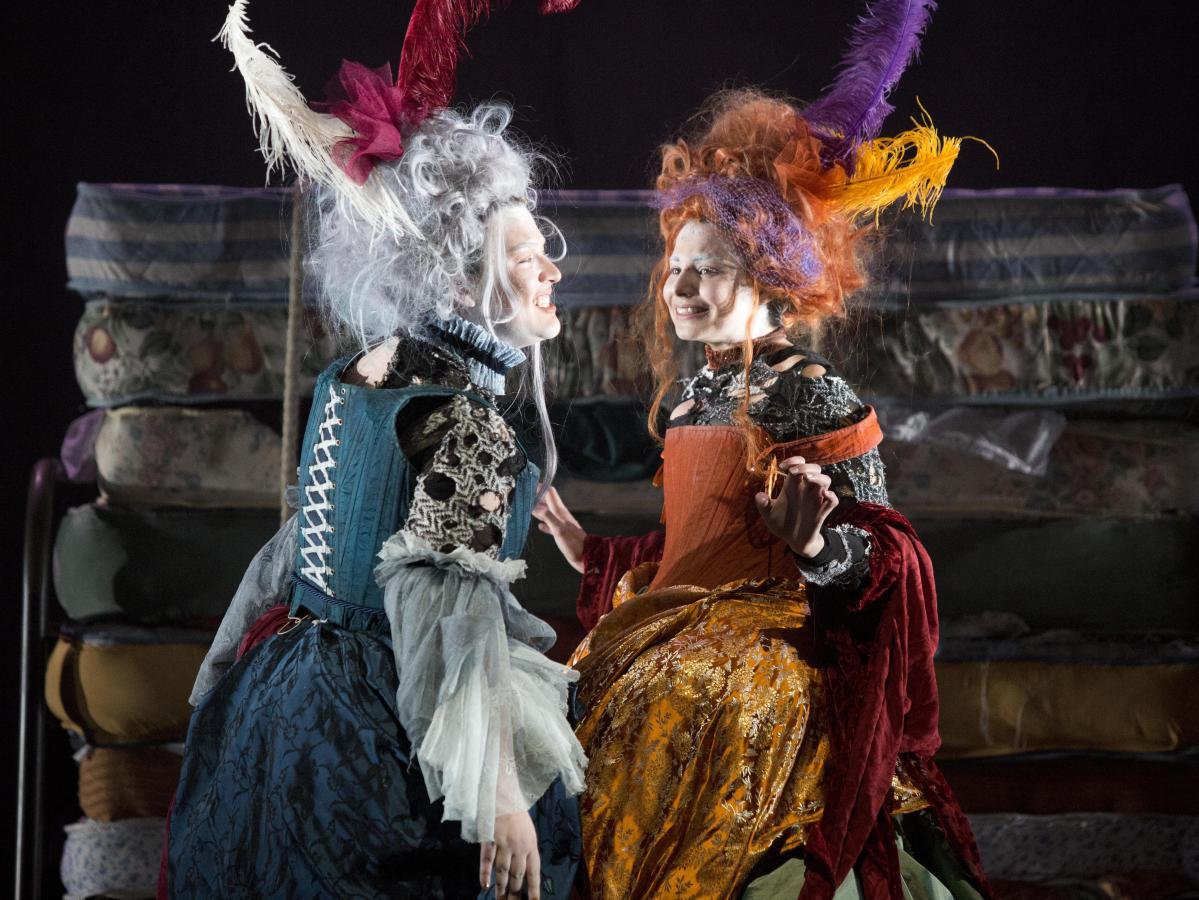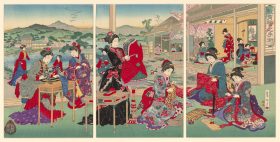Image: Eurydike + Orpheus. Supplied.
Costume making is all about technical knowledge and its skilled application. Practitioners must know everything from costume construction and pattern-making, to art finishing, millinery and leatherwork. But training also imparts other important skills, such as managing time and budgets in a stressful workroom situation.
To shine some light into this little-known corner of the costume making process, ArtsHub spoke to Kathleen Szabo, a third year student studying Bachelor of Fine Arts (Costume) at NIDA who supervised the costume department for the recent June production of Eurydike + Orpheus.
While the course prepares students for careers in costume-making and management, it also develops real world skills through practice-led education. As Szabo discovered, the course has also prepared her for a senior position in the arts and entertainment industries.
Szabo worked closely with first year students for the production, supervising their work throughout the creation of 45 costumes. ‘I was in the Costume Supervisor role. I had three students from first year Costume and Design who were my assistants throughout the process. They’d spend half a day with me most days during the week just getting things ready for the performance,’ she said.
The Costume Supervisor works closely with each of the members of the team, while also bringing their own technical knowledge and skills to the process.
Each morning began with a conversation with the designer, Masters of Fine Arts (Design for Performance) student Genevieve Graham, where Szabo would identify any deadlines her crew had to meet. ‘By the afternoon I would have some things ready for the students and I would work with them and direct them with what we needed to have done that day,’ she said.
Real-time skills
The process meant being pulled in multiple directions at once. Szabo had to communicate the vision for the show to her crew, while also completing everything on time. She said the experience taught her to deal with stress in a productive way.
‘Things are always changing in those environments and you’re often getting information from several different people at a time. [It’s about] learning how to deal with stress and how to take things on in a way that you can deal with while making things happen, instead of fighting the changes,’ said Szabo.
‘In my position, I was working with the designer a lot so I needed to be calm in order to help her achieve her vision. I also needed to be in a good headspace to deal with my crew and give them the time and space they need to do things well, all while ensuring that I didn’t project my stress onto any of them.’
The benefit of practice-led education is that students learn these lessons within a supportive education environment. Experiencing a supervising role also gives students a solid, overall understanding of the entirety of the process, not just one part.
‘If you are working in the costume department in either theatre or film, you have a good understanding of how the roles work together, and all the things that go on between departments and between the supervisor and designer that the public may not be aware of,’ said Szabo.





